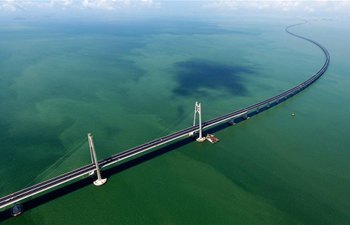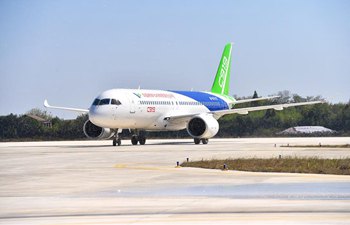TOKYO, Oct. 29 (Xinhua) -- Japan has successfully launched a new Ibuki-2 satellite into its planned orbit where it will collect data on carbon dioxide and other gases thought to be linked to global warming as it orbits the earth, the space agency said Monday.
According to the Japan Aerospace Exploration Agency (JAXA), the satellite was carried on a H2A rocket which launched from the Tanegashima Space Center in Kagoshima Prefecture in southwestern Japan, at 1:08 p.m. local time on Monday.
The satellite, jointly developed by JAXA, the Environment Ministry and the National Institute for Environmental Studies and launched by JAXA and Mitsubishi Heavy Industries Ltd., was successfully put into its orbit 16 minuted after liftoff at an altitude of around 612 km, JAXA said.
Ibuki-2, also known as GOSAT-2, will survey carbon dioxide and other global warming gases with greater precision than its predecessor, Ibuki, which was launched in 2009.
Ibuki-2 has sensors that can separate carbon dioxide occurring naturally from CO2 created by industrial activities and will help signatories to the Paris Climate accord with their collective push to keep a temperature rise this century below two degrees Celsius from preindustrial levels.
The 5.8-meter long, 1.8-ton satellite will begin full-scale observations in about 2-and-a-half months, the space agency said.
The H2A rocket on Monday also launched an Earth observation satellite from the United Arab Emirates, marking Japan's third launch of a foreign satellite.
The rocket also launched a smaller satellite developed by universities in Japan.










